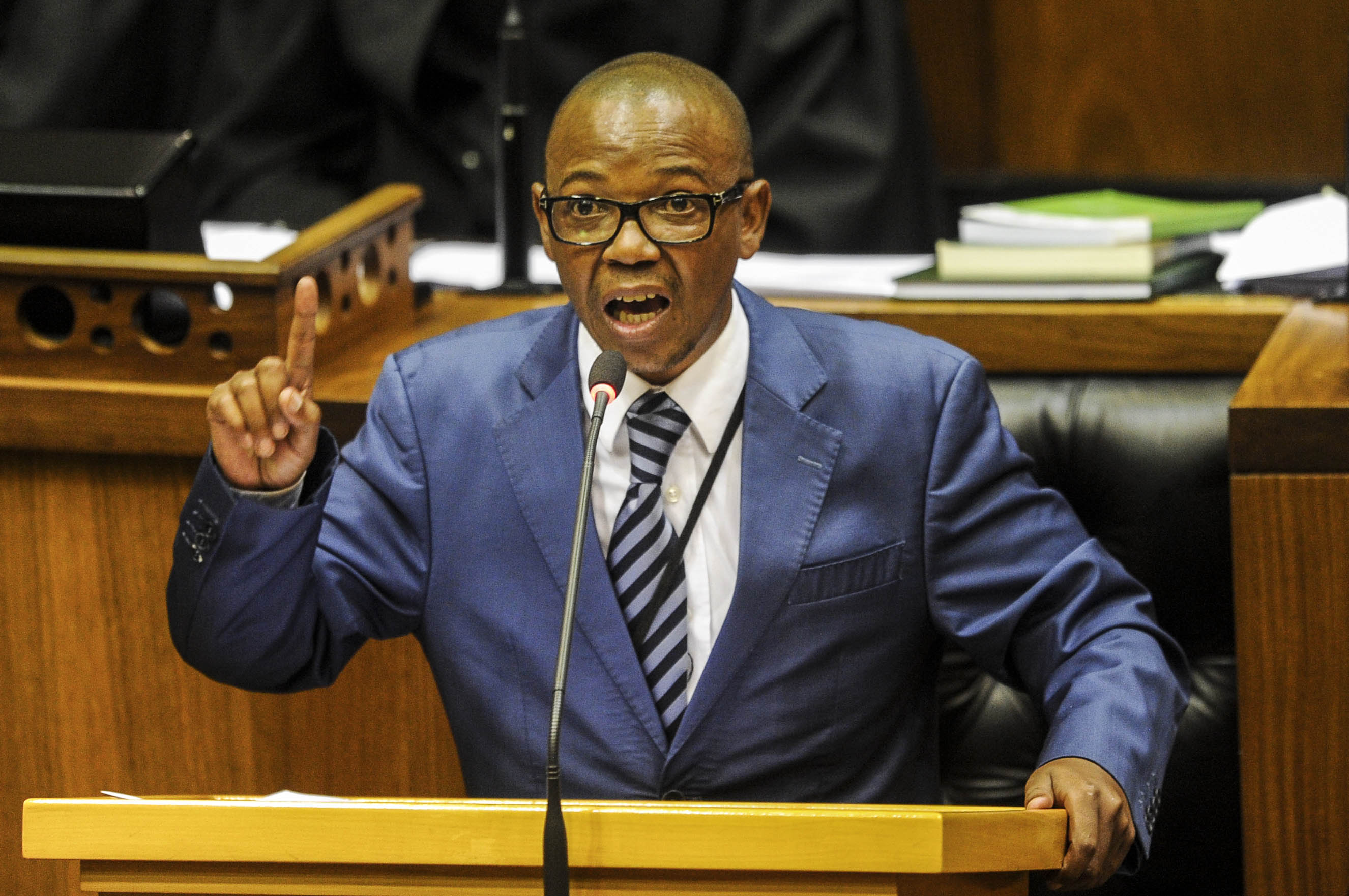Elijah Litheko
Opposing camps of ANC president Cyril Ramaphosa and President Jacob Zuma supporters are squaring off in the Western Cape, each intent on installing their preferred candidate.
Ebrahim Rasool, the former Western Cape premier dispatched by the ANC over the “brown envelopes to journalists” saga as South African ambassador to the United States, and Mcebisi Skwatsha, the deputy minister of land reform, have emerged as the leading contenders to take over the party’s chairpersonship and to be the ANC’s Western Cape candidate for premier in next year’s national elections.
“They are seen as transitional leaders who can unite the warring factions in the province. The scenarios with Ebrahim are positive because he has credibility in government, along with Skwatsha,” a senior member of the ANC Western Cape provincial executive said this week.
“The thinking is that they were respected leaders in the past and let’s give them a chance because we don’t have leaders now,” the member said.
Both Rasool and Skwatsha were instrumental in driving Ramaphosa’s #Siyavuma campaign in the run-up to the December conference.
But Zuma’s backers would prefer the deputy police minister, Bongani Mkongi, who was been a vocal backer of the Dullah Omar region and was appointed to the Cabinet by Zuma in May 2016, to take over.

[Bongani Mkongi, the deputy police minister, is an NDZ supporter. (Jaco Marais/Gallo Images)]
“As [ANC] youth league chairperson, he [Mkongi] did very well and now, in police, he is at the forefront of the war against crime. So he’s tried and tested,” an ANC regional leader in the Cape Town metro said.
The position of chairperson of the province will have to be filled when acting chairperson Khaya Magaxa steps down this year.
Magaxa took over after Marius Fransman was suspended by the ANC’s national executive committee in 2016 for misconduct, for making statements that brought the ANC into disrepute and for using his position to obtain sexual favours.
Despite their differing leadership preferences, both camps agree on the need to use Ramaphosa’s election as ANC president and the Cape Town water crisis to secure the votes of Democratic Alliance supporters in the province.
“If you go to Fish Hoek, white people say they will vote for Cyril,” said ANC Western Cape secretary Faiez Jacobs. “It’s an age of renewal for the ANC and I previously made the point that Cyril is like Madiba. It’s almost like 1994. He represents a recalibration of the ANC and has potential to unite everybody.”
Ramaphosa will officially launch the provincial election campaign on February 11 at a special event at the Grand Parade in Cape Town to commemorate Nelson Mandela’s release from prison.
Mkongi said the ANC should use Ramaphosa’s election to change the perception of the party.
“The ANC will be assisted by the national changes. The election of the new president of the ANC should be utilised effectively and change the perception … We will be campaigning with the new president of the ANC to turn the tide,” Mkongi said.
But he cautioned against using the water crisis for politicking. “We are not going to make it political football. [Western Cape Premier] Helen Zille is trying to blame national government but they knew about this thing 10 years ago. Dullah Omar region must just campaign and mobilise our people against this government that is not caring.”
Jacobs said the ANC had not failed to capitalise on the crisis but the DA’s “propaganda” had had been more effective. “My sense is the DA always has the narrative. And there’s almost an embedded racism there, the need to believe white is right. We have been too complacent … and there’s definitely room for improved propaganda. The DA is very good at smoke and mirrors and deflection,” he said.
A former youth league chairperson for two terms, Mkongi is from Gugulethu and the Dullah Omar region. The region supported Zuma and Nkosazana Dlamini-Zuma in the run-up to the national conference.
On Wednesday Mkongi said his experience in the youth league had prepared him for the position.
“I presided over a united organisation through dedicated campaigns to make sure that the demands and aspirations of young people are at the centre of the state … We have put the youth of the Western Cape at that time on the map,” he said.
But he vowed not to buy votes or bribe people to campaign for him. “It’s better that I should not emerge because of money. I am not going to fund my campaign to be a chairperson. Branches must campaign for me and get me there … And If people think I’m not yet ready, it is their right. And I’m not going to fight it.”
Other leaders vying for the position of chairperson include ANC MPL Cameron Dugmore and Jacobs, with the latter described as a dark horse in the race.
Jacobs was at the forefront of Ramaphosa’s campaign in the Western Cape and the province voted nearly en bloc at the December conference, leading to increased support for his campaign to become chairperson, despite accusations by Zuma’s backers that Jacobs has sidelined the regions who supported Dlamini-Zuma.
Dugmore’s appeal is his ability to attract support from the province’s white population, among whom the party’s support was now nearly nonexistent, the ANC leader said.
“Cameron is potentially appealing to the lost white constituency and he is liked in all constituencies. There is currently a big push to regain the nonracial character of the ANC and his support probably reflects that.”
The Western Cape ANC is due to hold its provincial conference next year but will elect a permanent chairperson at a provincial general council in May, after which its candidate for premier will be announced.